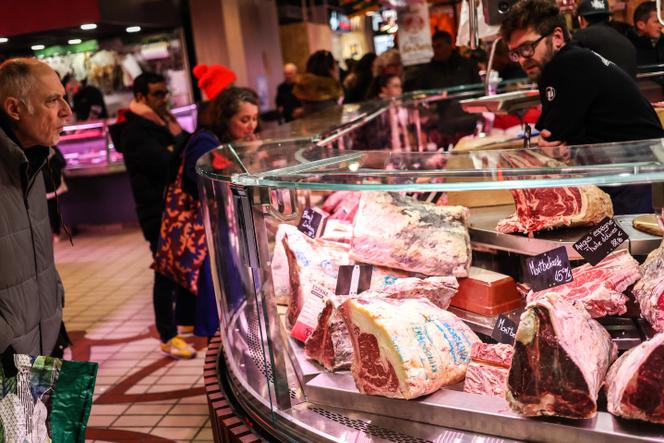


"Eat five fruits and vegetables a day," "avoid eating [food that is] too fat, too sugary, too salty." These nutritional recommendations from the French National Nutrition and Health Program (PNNS) have become ingrained in French people's minds. Could a recommendation to "cut meat consumption by half" be added to them in the near future?
Such is at least the proposal of the French Nutrition Society (SFN), a learned society of public and private sector nutrition experts, and the Climate Action Network (RAC), in a document published on Tuesday, February 20, by the two organizations. In particular, they based their conclusions on models visualizing the changes that French people could make in their eating habits to reduce their meat consumption, all while satisfying their nutritional needs.
"Today, we can no longer just think in terms of human health alone," observed nutrition and public health expert and SFN member Nicole Darmon, who helped create these models. "We're also thinking in terms of the planet's health," added Darmon, who is also a research director at the French National Research Institute for Agriculture, Food and the Environment (INRAE).
This call comes as the PNNS is set to revise its recommendations – which are updated every four years – and as meat consumption remains a highly controversial issue. The program currently recommends eating a maximum of 500 grams of red meat (beef, pork, lamb) and 150 grams of charcuterie per week, all while favoring poultry consumption – although no limit is set for the latter.
These recommendations are based on studies demonstrating the health impacts of red meat and charcuterie: These foods increase the risk of cardiovascular disease, colorectal cancer and type 2 diabetes. However, they don't take into account the growing number of publications in recent years on their impact on the planet: "Meat – especially ruminant meat (beef and lamb) – was consistently identified as the single food with the greatest impact on the environment," wrote the Intergovernmental Panel on Climate Change (IPCC) in its 2019 report.
In this new study, researchers assessed the French population's real consumption habits, based on a survey of over 3,000 adults. They created several models and found that, for France to meet its environmental commitments, efforts would need to be made on food consumption – which today accounts for 22% of the country's carbon footprint.
When it comes to meat in particular, the French currently eat over 700 grams a week. Half of this is red meat, with the rest divided between poultry and charcuterie. "There is a significant proportion of French people who feel like they are eating less meat, or who would like to eat less. But meat consumption is not decreasing," explained Benoît Granier, head of food at RAC and co-author of the study.
You have 53.69% of this article left to read. The rest is for subscribers only.
